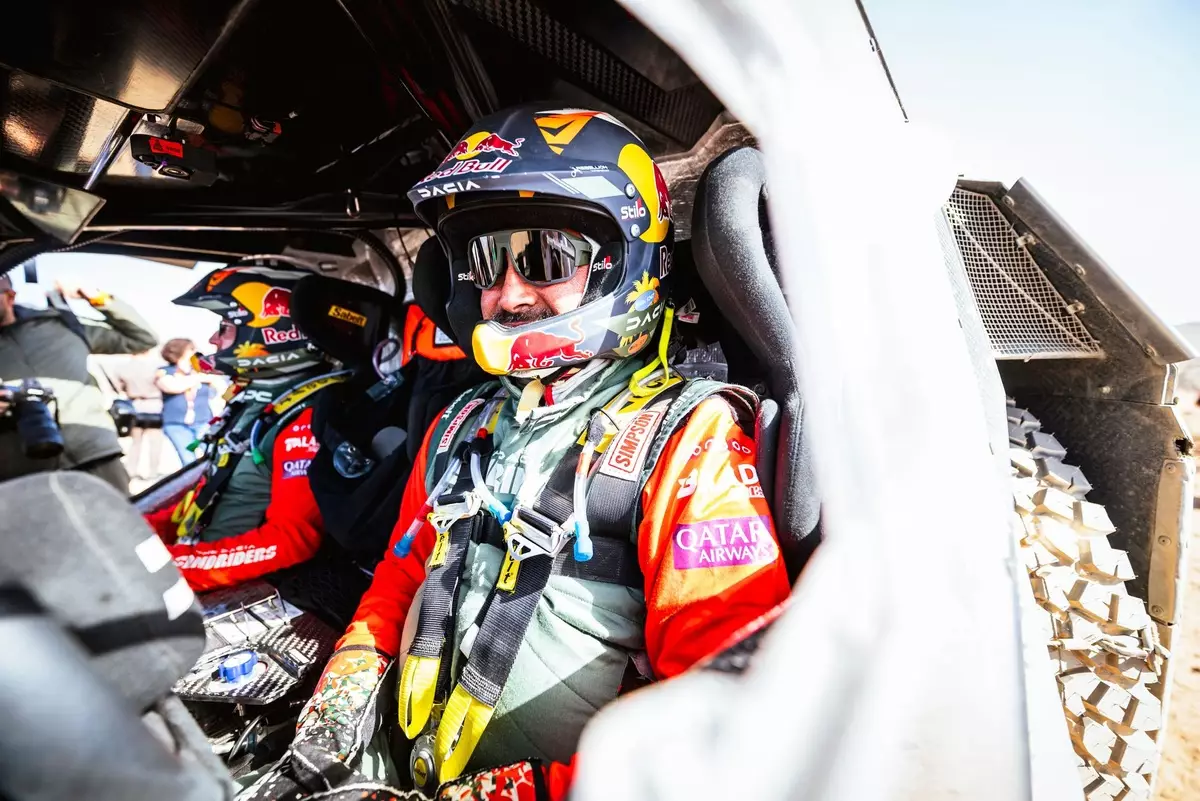The Dakar Rally, hailed as one of the most grueling off-road races in the world, has once again been marred by controversy. Nasser Al-Attiyah, the seasoned driver representing the Dacia team, has recently expressed his discontent with the FIA’s decision to disqualify fellow competitor Carlos Sainz Sr. from the ongoing Dakar Rally 2025. Sainz, a formidable competitor alongside Al-Attiyah’s teammate, Sebastien Loeb, found himself sidelined following severe damage to his vehicle’s roll cage, a situation that has ignited a fervent debate around safety protocols, race integrity, and regulatory consistency.
The FIA justified their decision by asserting that they could not ensure the safety of drivers like Sainz and Loeb in the event of another similar incident. The organization emphasizes that adhering to strict safety regulations is paramount, a premise that might seem sound on the surface. However, Al-Attiyah’s criticism highlights a significant gap between regulatory safety measures and practical racing realities. He argued that race participants should possess the capability to repair their vehicles during an event—an approach that is not uncommon in cross-country racing. Al-Attiyah contended that “the rules are not clear,” pointing to a larger issue in the governance of the sport where the balance between safety and competitive fairness appears increasingly tenuous.
Al-Attiyah’s disagreement raises a pivotal question: do the safety regulations stifle competition by excluding capable drivers unjustly? His calls for inclusivity, wanting to race against all competitors, including Sainz and Loeb—two heavyweights of the rallying world—underscore his belief that the spirit of competition ought to prevail over rigid regulations that may undermine the race’s excitement and integrity.
In addition to the controversy surrounding Sainz, Al-Attiyah voiced his frustration regarding a ten-minute penalty imposed on him for the loss of a spare wheel during Stage 5. His discontent concerning the penalty illustrates a broader dissatisfaction with how race regulations are enforced and interpreted. Al-Attiyah has expressed plans to communicate directly with Mohammed Ben Sulayem, the president of FIA, highlighting the necessity for transparency and fairness in officiating. He indicated that while penalties are essential for maintaining order, their application must be consistent and just.
The incident with the spare wheel brings to light another layer of complexity in the racing world. While regulations are crucial to maintaining safety standards, race conditions can often be chaotic and unpredictable. Drivers like Al-Attiyah assert that these rules must account for the realities faced on the track. Such complaints are not isolated; they resonate across the rally community, where many drivers fear being penalized for circumstances beyond their control.
Despite facing hurdles—including a four-minute deficit in the overall standings to rivals like Toyota’s Lategan—Al-Attiyah remains undeterred and confident about achieving another victory in the Dakar. His determination to close the gap and eventually surpass the records set by rally legends like Stephane Peterhansel speaks to his tenacity and experience. Al-Attiyah’s passion isn’t only for winning; it’s clear he wants to compete honestly and fairly, which he believes will serve to uplift the sport itself.
With six more stages to navigate, the potential for mistakes looms large. The psychological pressure that accompanies close competition can often lead to errors, adding another layer of intensity to the race. Al-Attiyah’s commitment to pushing through the remaining stages reflects his understanding that in rally racing, resilience, and courage often yield the most significant rewards.
The Dakar Rally, with its sweeping deserts and treacherous terrains, is an arena where the stakes are endlessly high. Al-Attiyah’s candid criticisms of the FIA’s decisions shine a spotlight on the ongoing struggle between safety regulation and competitive fairness. As the rally continues, the hope remains that the governing bodies will listen to the voices of competitors and adapt accordingly to nurture a competitive yet safe environment. The sport thrives on the passion of its participants, and it’s this passion that fuels the desire for clarity, fairness, and the unrelenting pursuit of victory in one of the most challenging terrains of the world.

